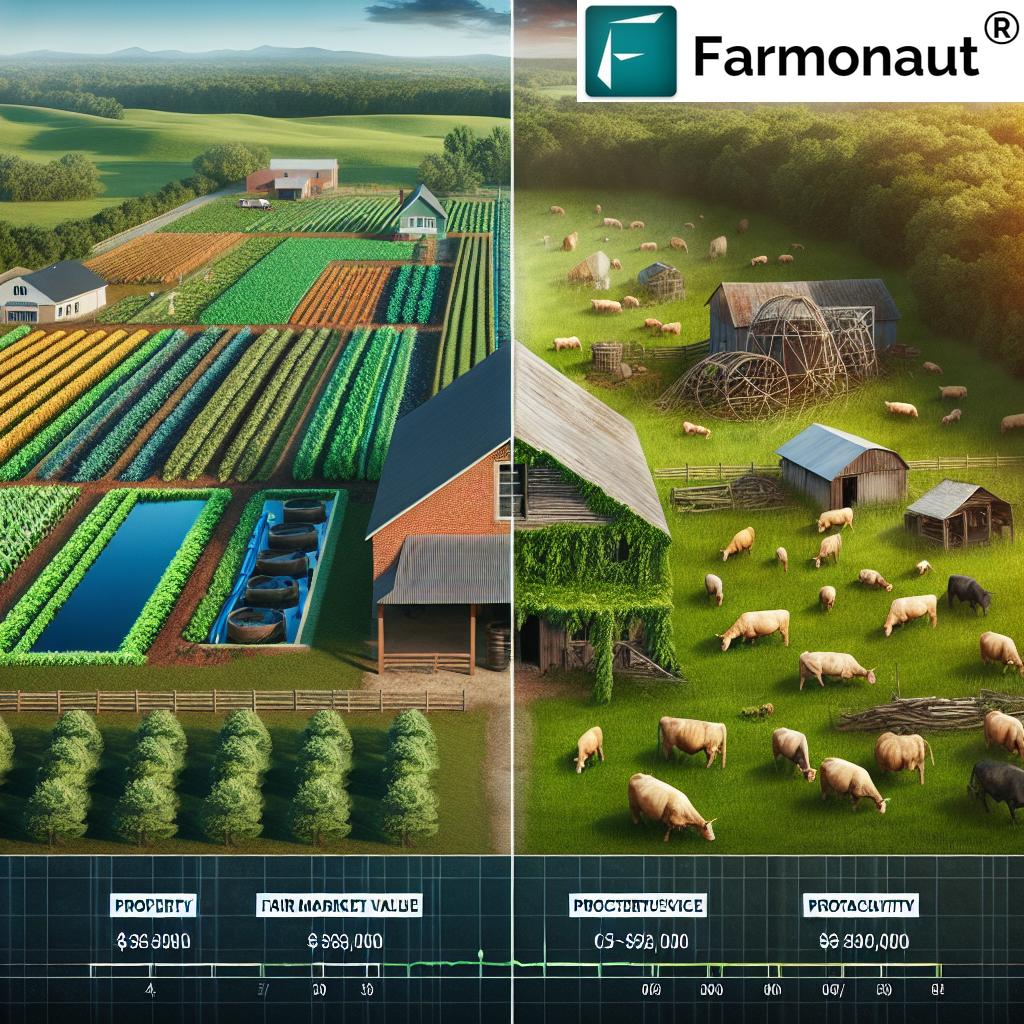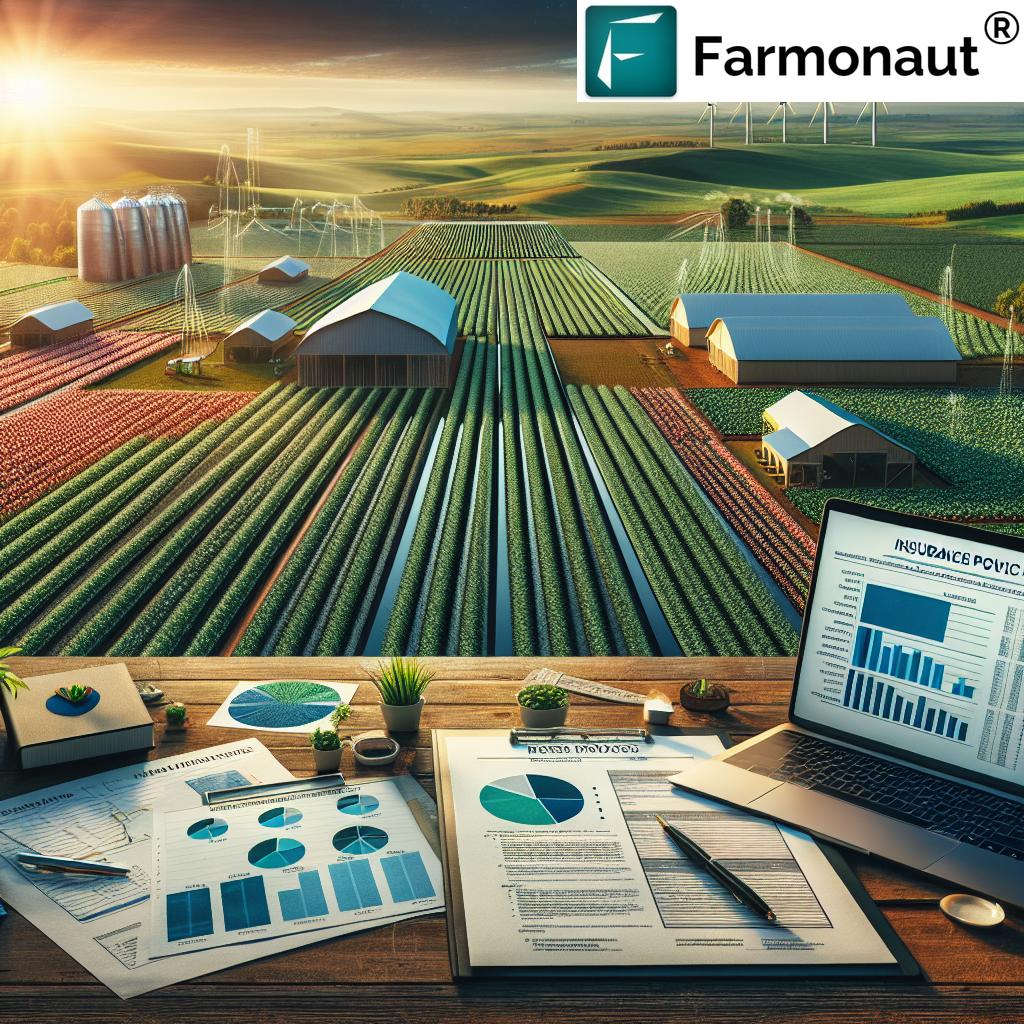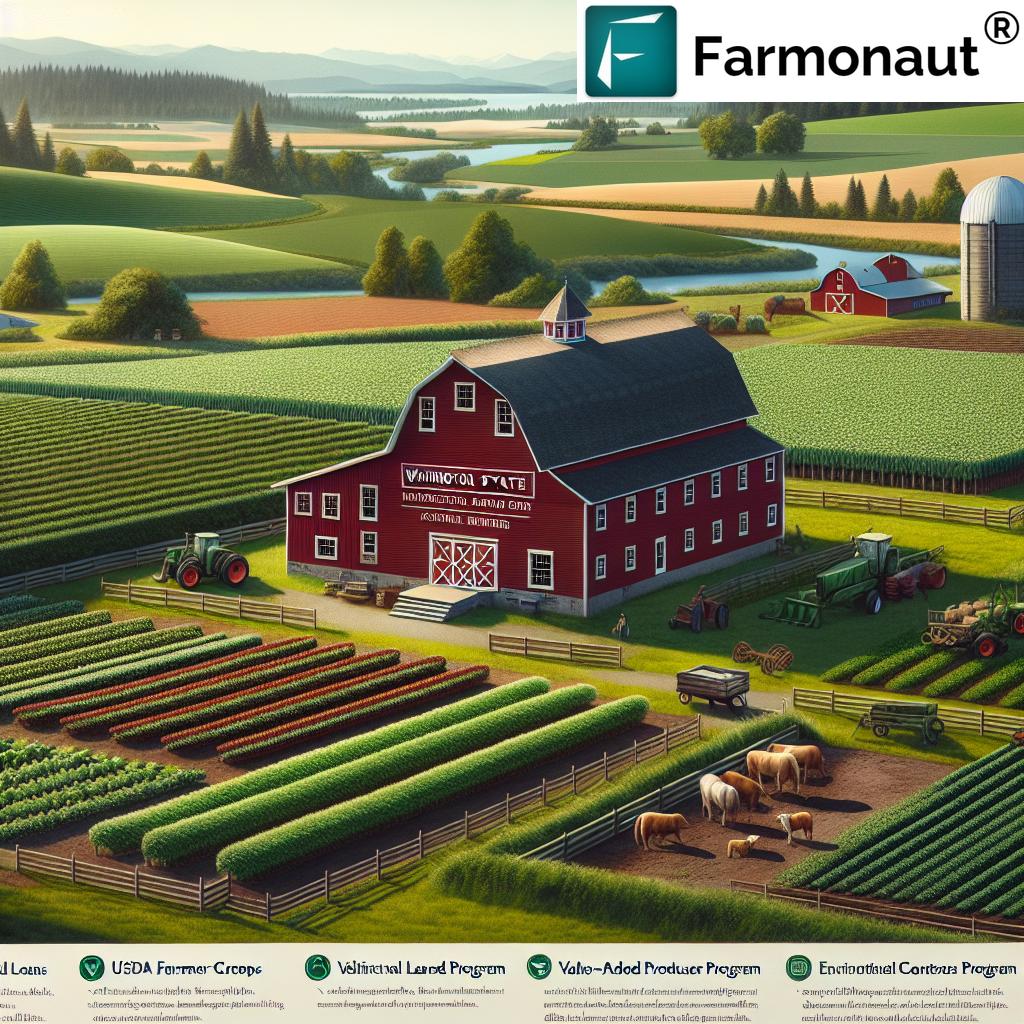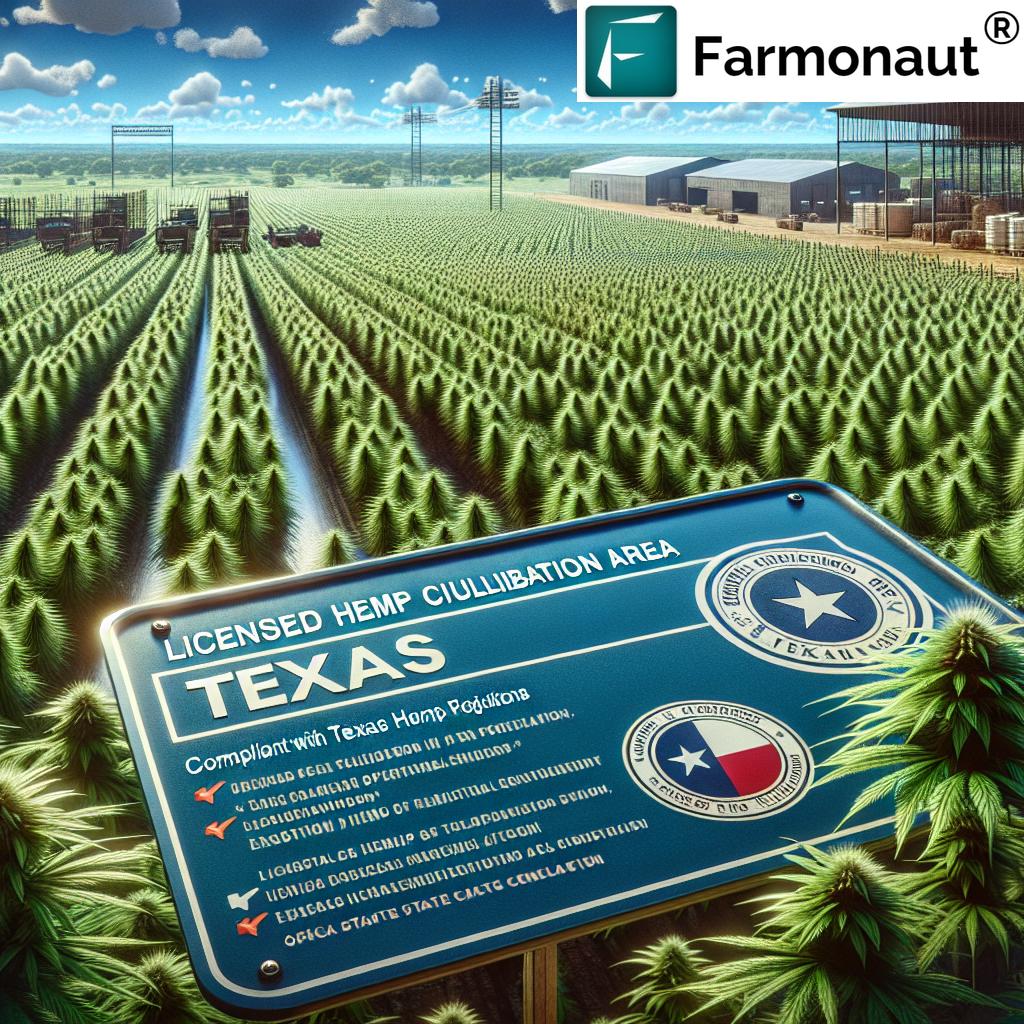Georgia’s Farmland Preservation: New Agricultural Tax Laws Boost Conservation and Property Protection
“Georgia’s new bill removes limitations on leased property, potentially benefiting over 1,000 non-family farm partnerships.”
In the heart of the Peach State, a significant transformation is underway in the agricultural landscape. We’re witnessing a pivotal moment for Georgia’s farmers and landowners as new legislative changes reshape the future of farmland preservation and agricultural tax laws. As we delve into these developments, it’s crucial to understand how these updates will impact the farming community and the state’s commitment to protecting its valuable agricultural resources.
The Evolution of Conservation Use Valuation Assessment (CUVA)
At the forefront of this agricultural revolution is the amendment to the Conservation Use Valuation Assessment (CUVA) legislation. This cornerstone of Georgia’s farmland preservation efforts has been a vital tool for landowners since its inception in 1992. CUVA has allowed property owners to enter into covenants for forested and agricultural lands, significantly reducing their property taxes by basing assessments on land productivity rather than fair market value.
However, as the farming industry has evolved, so too must the laws that govern it. The recent passage of House Bill 129 through the General Assembly marks a watershed moment in adapting these regulations to the realities of modern agriculture.
Key Changes in CUVA Legislation
- Removal of Leased Property Limitations: The new bill eliminates restrictions on leased property for certain entities, opening doors for non-family farm partnerships to benefit from conservation covenants.
- Recognition of Modern Farm Structures: Acknowledging the shift from traditional family farms to LLCs and partnerships, the updated laws now accommodate these contemporary business models.
- Expansion of Eligible Acreage: A proposed constitutional amendment aims to increase the maximum acreage for bona fide conservation use property assessment from 2,000 to 4,000 acres.
These changes reflect a deep understanding of the challenges faced by today’s farmers and landowners. By adapting to current agricultural practices, Georgia is taking significant steps to ensure the longevity and sustainability of its farming industry.

The Impact on Georgia’s Agricultural Landscape
The implications of these legislative updates are far-reaching and multifaceted. Let’s explore how these changes will shape the future of farming in Georgia:
- Enhanced Property Protection: By expanding the scope of CUVA, more landowners can safeguard their agricultural properties from development pressures and enjoy significant tax benefits.
- Support for Modern Farming Practices: The recognition of LLCs and partnerships in the conservation covenant program aligns with current trends in farm ownership and management.
- Encouragement of Land Conservation: The potential increase in maximum acreage for assessment incentivizes larger landowners to commit to long-term conservation practices.
- Boost to Agricultural Economy: Reduced property tax burdens allow farmers to reinvest in their operations, potentially leading to increased productivity and economic growth in the agricultural sector.
As we navigate these changes, it’s essential to consider how technology can support and enhance these conservation efforts. For instance, Farmonaut’s crop plantation and forest advisory services can provide valuable insights for landowners looking to optimize their land use while adhering to conservation practices. These tools can help farmers make data-driven decisions about crop selection, resource management, and sustainable farming techniques.
Breaking Down the Legislative Process
The journey of House Bill 129 through the Georgia General Assembly is a testament to the state’s commitment to agricultural preservation. Sponsored by state Rep. Chas Cannon and state Sen. Sam Watson, both from Moultrie, the bill emerged from recommendations made by the Farmland Preservation Study Committee.
Key aspects of the legislative process include:
- Passage through both houses of the General Assembly
- Amendments to existing code to remove limitations on leased property
- Addition of provisions to reinstate and extend the post-film production tax credit
- Proposal of a constitutional amendment to increase maximum acreage for conservation use assessment
This comprehensive approach to updating agricultural laws demonstrates Georgia’s proactive stance in addressing the evolving needs of its farming community.
The Role of Technology in Modern Farmland Management
As we embrace these legislative changes, it’s crucial to recognize the role of technology in supporting modern farmland management and conservation efforts. Advanced tools and platforms can significantly enhance the effectiveness of these new laws by providing farmers and landowners with data-driven insights and management capabilities.
For example, Farmonaut’s large-scale farm management solutions offer comprehensive tools for monitoring and managing vast agricultural operations. These technologies can help farmers:
- Monitor crop health across large acreages
- Optimize resource allocation
- Implement sustainable farming practices
- Ensure compliance with conservation covenants
By leveraging such advanced technologies, Georgia’s farmers can maximize the benefits of the new CUVA legislation while promoting sustainable and efficient agricultural practices.
Comparative Analysis: Previous vs. Updated CUVA Legislation
| Aspect | Previous CUVA | Updated CUVA |
|---|---|---|
| Eligible Property Owners | Primarily individual and family farms | Expanded to include non-family partnerships and LLCs |
| Leased Property Limitations | Restricted for non-family entities | Limitations removed for certain entities |
| Maximum Acreage for Assessment | 2,000 acres | Proposed increase to 4,000 acres (pending voter approval) |
| Tax Reduction Percentage (estimated) | 25-75% (varies by county) | 25-75% (potentially more properties eligible) |
| Covenant Duration | 10 years | 10 years (unchanged) |
| Non-Family Farm Partnerships | Limited eligibility | Expanded eligibility |
| LLC Eligibility | Restricted | Fully eligible |
This comparative analysis highlights the significant changes in the CUVA legislation, demonstrating Georgia’s commitment to adapting its agricultural laws to modern farming practices and structures.
The Intersection of Conservation and Innovation
As we navigate these legislative changes, it’s important to consider how innovative technologies can complement and enhance conservation efforts. For instance, Farmonaut’s carbon footprinting tools can help farmers and landowners monitor and reduce their environmental impact, aligning with the conservation goals of the CUVA program.
These technologies offer several benefits:
- Real-time monitoring of carbon emissions
- Identification of areas for sustainability improvements
- Support for environmentally conscious farming practices
- Potential for additional incentives or certifications related to carbon reduction
By integrating such innovative solutions, Georgia’s agricultural sector can lead the way in combining conservation with cutting-edge farming practices.
“Voters will decide on increasing the maximum acreage for conservation use assessment, possibly affecting 100,000+ acres of farmland.”
Financial Implications for Georgia’s Farmers
The financial impact of these legislative changes on Georgia’s farming community cannot be overstated. By expanding eligibility for conservation covenants and potentially increasing the maximum acreage for assessment, the state is providing significant economic benefits to farmers and landowners.
Key financial implications include:
- Reduced property tax burdens, allowing for reinvestment in farm operations
- Increased financial stability for non-family farm partnerships and LLCs
- Potential for larger farms to benefit from conservation assessments on more of their land
- Encouragement of long-term land conservation through economic incentives
These financial benefits are crucial for the sustainability of Georgia’s agricultural sector, especially in the face of increasing economic pressures and development challenges.

Enhancing Agricultural Productivity Through Technology
While the new legislation provides a strong foundation for farmland preservation, combining these legal protections with advanced agricultural technologies can significantly boost productivity and sustainability. Farmonaut’s fleet management solutions, for example, can help large-scale farms optimize their operations, reduce costs, and improve efficiency.
Benefits of integrating technology with conservation practices include:
- Precision agriculture techniques for optimal resource use
- Data-driven decision-making for crop management
- Improved yield forecasting and risk management
- Enhanced compliance with conservation requirements
By leveraging these technological advancements, Georgia’s farmers can maximize the benefits of the new CUVA legislation while promoting sustainable and efficient agricultural practices.
The Future of Farmland Preservation in Georgia
As we look to the future, the recent legislative changes set a strong foundation for the continued preservation of Georgia’s agricultural lands. However, the success of these initiatives will depend on several factors:
- Voter Approval: The proposed constitutional amendment to increase the maximum acreage for conservation use assessment will require approval in the November 2026 state-wide general election.
- Implementation and Awareness: Ensuring that farmers and landowners are aware of and can easily access the benefits of the updated CUVA program will be crucial.
- Technological Integration: Encouraging the adoption of advanced agricultural technologies to complement conservation efforts will be key to maximizing the impact of these legislative changes.
- Continued Legislative Support: Ongoing review and adaptation of agricultural laws to meet the evolving needs of the farming community will be necessary.
The path forward for Georgia’s agricultural sector looks promising, with a clear commitment to balancing conservation with modern farming practices.
Supporting Farmers Through Financial Tools
In addition to the tax benefits provided by the CUVA program, it’s important to consider other financial tools and support systems available to Georgia’s farmers. Farmonaut’s crop loan and insurance solutions can play a crucial role in this aspect, offering farmers additional financial security and risk management options.
These solutions can help farmers:
- Access crop loans more easily through satellite-based verification
- Obtain comprehensive crop insurance coverage
- Manage financial risks associated with agriculture
- Make informed decisions about farm investments and expansions
By combining the benefits of the new CUVA legislation with these financial tools, Georgia’s farmers can build a more resilient and sustainable agricultural economy.
Ensuring Transparency and Traceability in Agriculture
As Georgia’s agricultural sector evolves, there’s an increasing focus on transparency and traceability in the food supply chain. This aligns well with the state’s efforts to preserve farmland and promote sustainable agriculture. Farmonaut’s traceability solutions can play a vital role in this area, offering blockchain-based systems to track agricultural products from farm to consumer.
Benefits of implementing traceability systems include:
- Enhanced consumer trust in Georgia’s agricultural products
- Improved food safety and quality control
- Support for fair trade and sustainable farming practices
- Potential for premium pricing for traceable, high-quality products
By embracing these technologies, Georgia’s farmers can not only comply with the new conservation laws but also position themselves at the forefront of modern, transparent agriculture.
The Role of Artificial Intelligence in Modern Agriculture
As we discuss the modernization of Georgia’s agricultural laws and practices, it’s crucial to highlight the role of artificial intelligence (AI) in shaping the future of farming. AI technologies can significantly enhance the effectiveness of conservation efforts and improve overall farm management.
AI applications in agriculture include:
- Predictive analytics for crop yield and market trends
- Automated pest and disease detection
- Optimized resource allocation based on real-time data
- Personalized farming advice tailored to specific land and crop conditions
By integrating AI technologies with the new conservation-focused legislation, Georgia’s farmers can achieve a perfect balance between environmental stewardship and agricultural productivity.
Conclusion: A New Era for Georgia’s Agriculture
The recent updates to Georgia’s agricultural tax laws and conservation programs mark the beginning of a new era for the state’s farming community. By adapting to modern farming structures, expanding eligibility for conservation assessments, and potentially increasing the acreage limit for these benefits, Georgia is setting a strong foundation for the future of its agricultural sector.
As we move forward, the integration of advanced technologies, from satellite-based monitoring to AI-driven farm management, will play a crucial role in maximizing the benefits of these legislative changes. Georgia’s farmers now have the opportunity to combine traditional conservation practices with cutting-edge agricultural technologies, ensuring the long-term sustainability and productivity of their lands.
The future of Georgia’s agriculture looks bright, with a clear commitment to preserving farmland, supporting farmers, and embracing innovation. As these new laws take effect and technologies continue to evolve, we can expect to see a more resilient, efficient, and sustainable agricultural landscape in the Peach State.
FAQ Section
- What is the Conservation Use Valuation Assessment (CUVA) program?
CUVA is a program that allows landowners to enter into a covenant for forested or agricultural lands, reducing property taxes by basing assessments on land productivity rather than fair market value. - How does the new legislation change CUVA eligibility?
The new bill removes limitations on leased property for certain entities, allowing non-family farm partnerships and LLCs to benefit from conservation covenants. - What is the proposed change to the maximum acreage for conservation use assessment?
A constitutional amendment proposes to increase the maximum acreage from 2,000 to 4,000 acres, subject to voter approval in November 2026. - How do these changes benefit Georgia’s farmers?
The changes provide expanded eligibility for tax benefits, recognize modern farm structures like LLCs, and potentially allow larger farms to place more land under conservation covenants. - When will these legislative changes take effect?
Most changes will take effect upon the governor’s signature, while the acreage increase, if approved by voters, would become effective on January 1, 2027. - How can technology support these new conservation efforts?
Technologies like satellite monitoring, AI-driven farm management, and blockchain-based traceability can help farmers optimize their operations while adhering to conservation practices. - Will these changes affect property taxes for non-agricultural landowners?
The changes primarily affect agricultural and forested lands. Non-agricultural property owners should not see direct impacts from these specific legislative updates. - How can farmers learn more about these new benefits and how to apply?
Farmers should contact their local county tax assessor’s office or the Georgia Department of Revenue for detailed information on how to apply for CUVA benefits under the new legislation.
For those interested in leveraging technology to enhance their farming operations and comply with these new conservation-focused laws, explore Farmonaut’s comprehensive suite of agricultural solutions:
Additionally, for those looking to integrate Farmonaut’s advanced agricultural data into their own systems, check out our API and API Developer Docs.
Earn With Farmonaut
Earn 20% recurring commission with Farmonaut’s affiliate program by sharing your promo code and helping farmers save 10%. Onboard 10 Elite farmers monthly to earn a minimum of $148,000 annually—start now and grow your income!
Learn more about this exciting opportunity: Farmonaut Affiliate Program
Farmonaut Subscriptions













